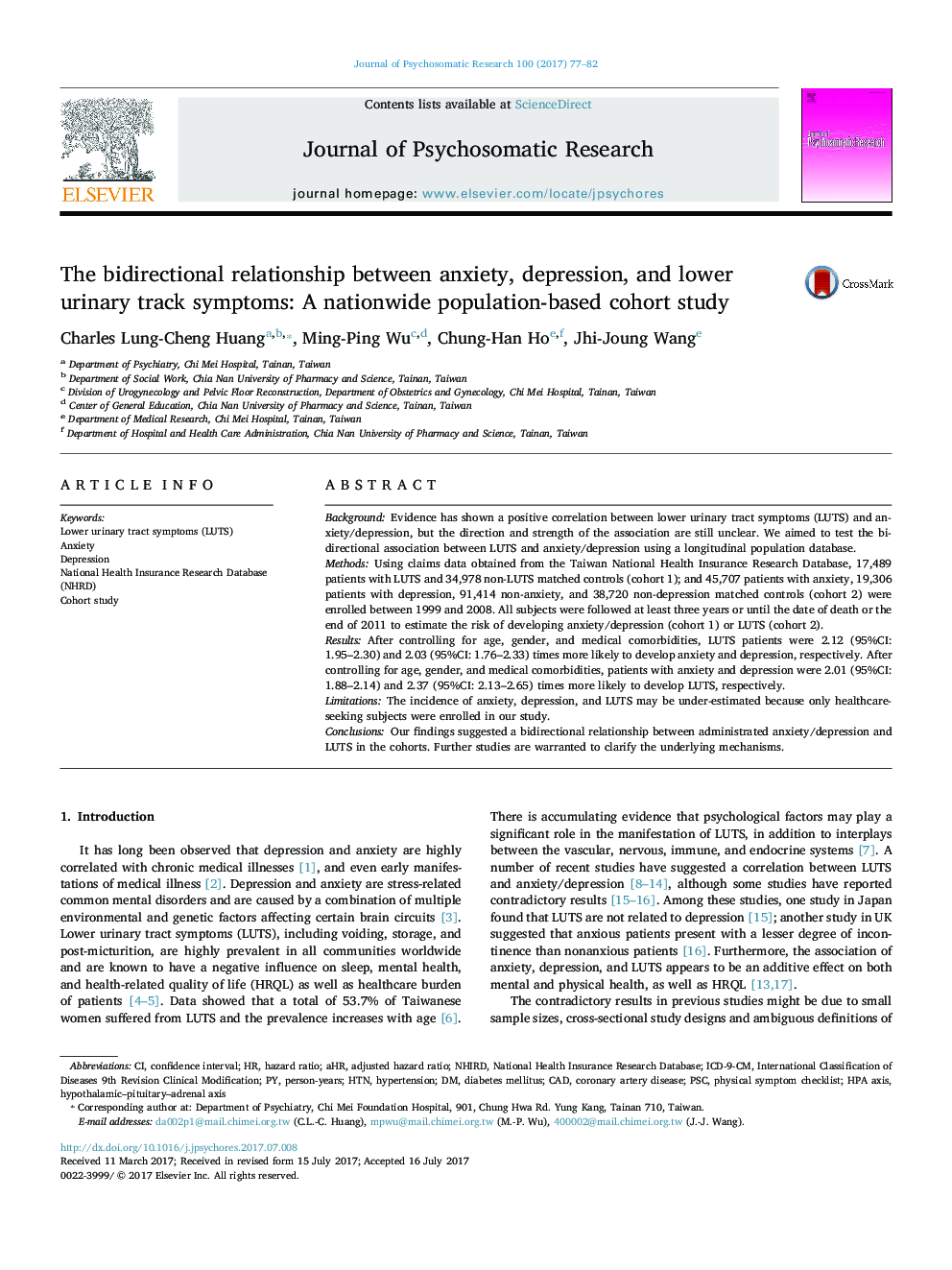| Article ID | Journal | Published Year | Pages | File Type |
|---|---|---|---|---|
| 5045804 | Journal of Psychosomatic Research | 2017 | 6 Pages |
â¢LUTS patients had an increased risk of developing anxiety and depression.â¢Subjects with anxiety and depression had an increased risk of developing LUTS.â¢Anxiety/depression and LUTS have a bidirectional association.
BackgroundEvidence has shown a positive correlation between lower urinary tract symptoms (LUTS) and anxiety/depression, but the direction and strength of the association are still unclear. We aimed to test the bidirectional association between LUTS and anxiety/depression using a longitudinal population database.MethodsUsing claims data obtained from the Taiwan National Health Insurance Research Database, 17,489 patients with LUTS and 34,978 non-LUTS matched controls (cohort 1); and 45,707 patients with anxiety, 19,306 patients with depression, 91,414 non-anxiety, and 38,720 non-depression matched controls (cohort 2) were enrolled between 1999 and 2008. All subjects were followed at least three years or until the date of death or the end of 2011 to estimate the risk of developing anxiety/depression (cohort 1) or LUTS (cohort 2).ResultsAfter controlling for age, gender, and medical comorbidities, LUTS patients were 2.12 (95%CI: 1.95-2.30) and 2.03 (95%CI: 1.76-2.33) times more likely to develop anxiety and depression, respectively. After controlling for age, gender, and medical comorbidities, patients with anxiety and depression were 2.01 (95%CI: 1.88-2.14) and 2.37 (95%CI: 2.13-2.65) times more likely to develop LUTS, respectively.LimitationsThe incidence of anxiety, depression, and LUTS may be under-estimated because only healthcare-seeking subjects were enrolled in our study.ConclusionsOur findings suggested a bidirectional relationship between administrated anxiety/depression and LUTS in the cohorts. Further studies are warranted to clarify the underlying mechanisms.
